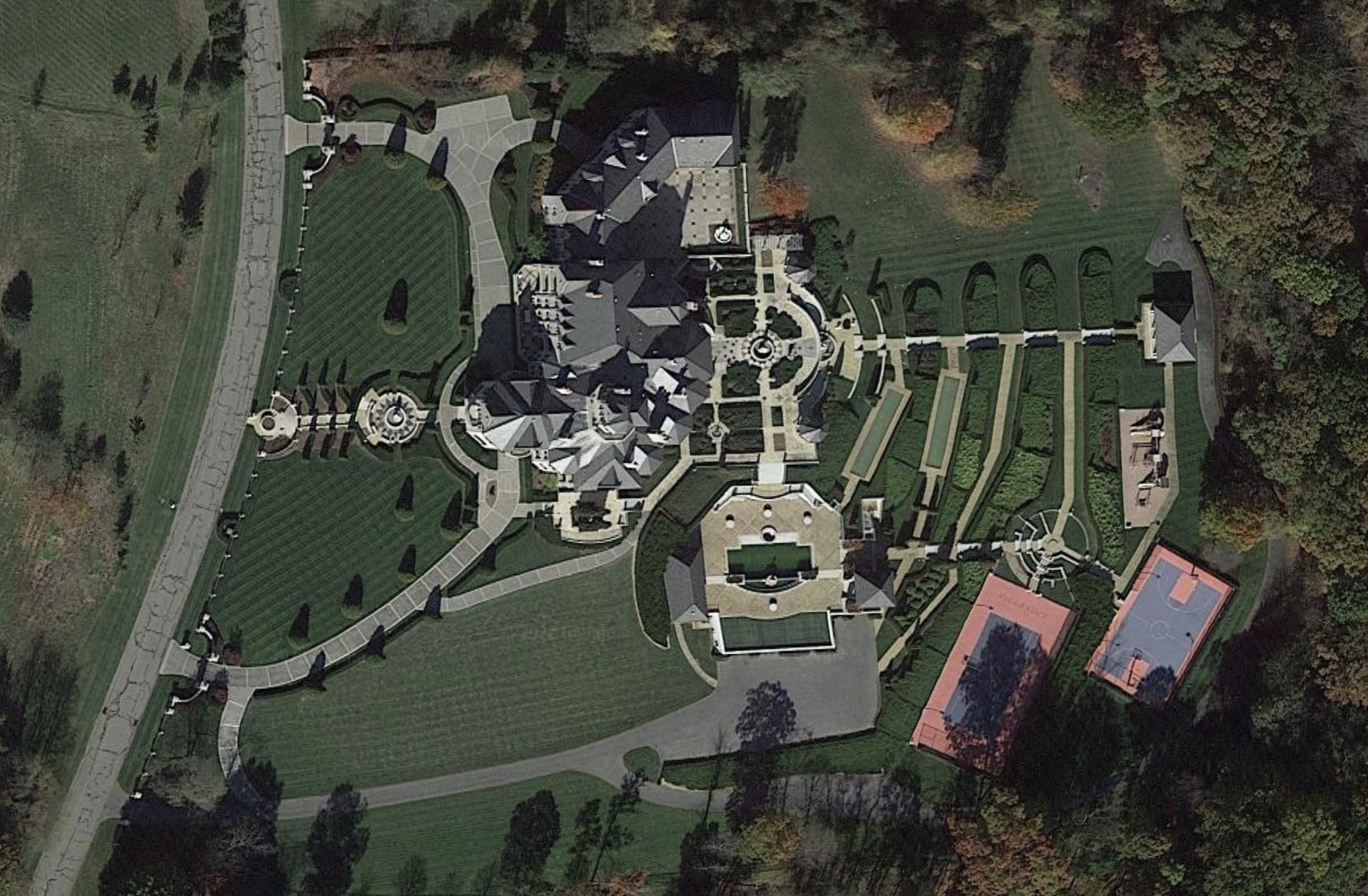Federal prosecutor Greg Melucci’s father came to America from Italy, unable to speak a word of English.
But he learned the language, served his new country in World War II, got an education, became a government engineer, bought a house, raised a family.
One day when he was a kid, Melucci saw his dad doing his taxes at the kitchen table.
The boy asked how the IRS knows if what he wrote down was true.
America had given his father a lot.
“The IRS deserves the truth,” he told his son.
Melucci recounted that story in court on Thursday during the sentencing of Joe Nocito, the rich 81-year-old North Hills businessman who built the largest private home in Pennsylvania — bigger than Donald Trump’s Mar-a-Lago — on the backs of U.S. taxpayers through a sophisticated years-long tax fraud scheme.
“The IRS deserved the truth from Mr. Nocito,” he told U.S. District Judge Joy Flowers Conti.
But the agency didn’t get it.
Because the truth is that Nocito built the 51,000-square-foot Bell Acres home he calls Villa Noci by fraudulently expensing every aspect of its construction, from the architectural work to the pool, to his various companies.
He also fraudulently expensed millions for personal expenditures, such as his fleet of fancy cars, private school tuition for his grandchildren, artwork, country club memberships and similar extravagances.
The judge listened to testimony for several hours Thursday but ran out of time. So she said she’ll finish the sentencing on Monday, when Nocito is expected to address her.
He’s already paid $15 million in restitution, but he’s facing a sentencing guideline range of 37 to 46 months in prison. He wants house arrest at one of his properties on Mount Washington, saying he’s old, his family needs him and he’s given a lot to charity. Prosecutors say he deserves to be locked up.
Melucci painted the Nocito saga as a William Shakespeare tragedy, quoting Macbeth in describing Nocito’s “unbridled ambition” to build an empire, hoard as much money as possible and hide it from the government.
Nocito, former CEO of Automated Health Systems on McKnight Road, laid out his plans in a 2000 document recovered by the IRS in which he listed 25 commandments he labeled “Wisdom, Thoughts and Life Lessons.”
One of them was to “maintain the lifestyle of the ‘millionaire next door’ (at least until you achieve the stage in life where you have all the material things you want, your next generation is well taken care of and it becomes a choice of giving it to the government or building the house of your dreams).”
He chose the house. And, the government says, he chose to rip off taxpayers to build it.
Melucci presented a power-point slide show outlining the fraud. Invoices from the home builder, for example, were expensed through Nocito’s companies as “consulting” or “repairs and maintenance.” For the pool, he expensed payments as “consulting” on one of his company’s books.
He did the same for the whole property — the basketball court, the tennis court, the playground, the garage and everything else. The end result was a mammoth edifice appraised at nearly $30 million.
“This is not a house,” Melucci said. “It’s a castle. It’s an estate. It’s Shakespearean.”
Melucci said Nocito also orchestrated a scheme prosecutors called the “money shuffle” in which he hid AHS income from the IRS by funneling it through his maze of companies. He controls more than 100 corporate entities. Melucci said in previous court papers that Nocito directed a “complex scheme to cheat and deceive the IRS” out of an estimated $93 million in personal and expense income.
The lead IRS agent on the case, Andrew Zurovcik, said Thursday that “seemingly every aspect” of Nocito’s life was illegally expensed.
Nocito’s lawyer, Phil DiLucente, didn’t dispute Nocito’s crimes. His client had pleaded guilty in November to conspiracy to defraud the U.S. But he said Nocito is much more than his crime. He described his client as a generous business owner and loving father and family man who gave freely to any person or institution that needed help, from the Catholic Diocese to poor children through the Pittsburgh Promise.
“Joe Nocito is the most unselfish man I have ever met in my life,” DiLucente said.
He presented nine character witnesses, including two priests, several relatives and Nocito’s wife, who all praised his good deeds. Many more friends and family wrote letters; Judge Conti said she’s never received more character letters for a defendant.
But the witness testimony was not without some minor drama.
One Nocito friend, James Smerdell, is the former IT director for AHS who described Nocito’s fraud as a “lapse in judgment.”
That caught the attention of Melucci, who confronted Smerdell in front of the packed courtroom. A tax fraud scheme that cost Americans millions, he asked, is a “lapse in judgment”?
“I don’t know what else you would call it,” Smerdell said.
“A crime,” Melucci responded.
Torsten covers the courts for the Pittsburgh Post-Gazette, but he's currently on strike. Reach him at jtorsteno@gmail.com.


